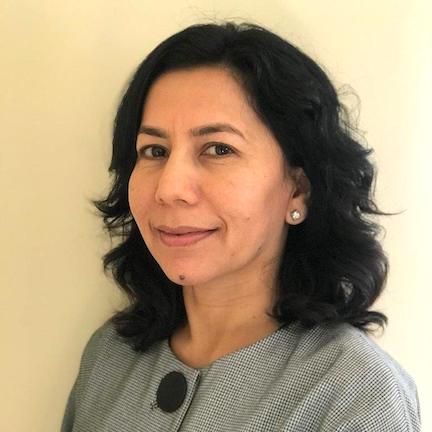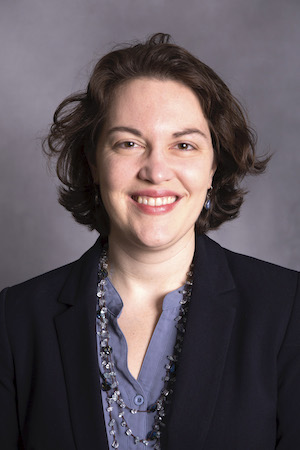-
What We Do
- WHERE WE WORK
-
About Us
 Welcome Message from Carol Jenkins
Welcome Message from Carol JenkinsFor more than 90 years, World Learning has equipped individuals and institutions to address the world’s most pressing problems. We believe that, working together with our partners, we can change this world for the better.
On my travels, I’ve had the opportunity to meet with many of those who have joined us in this mission. In Baghdad, we’ve trained more than 2,300 Iraqi youth who are already giving back at home. In London, our partners in the TAAP Initiative strongly believe that we are all responsible to practice inclusion. And in Vermont, our Experiment in International Living and School for International Training participants prove every day that they have the tools and the determination to change the world.
Please join us in our pursuit of a more peaceful and just world.
- Get Involved
Media Center > Story
Part One: Staff Reflections in Honor of Women’s History Month
March 17, 2022
During Women’s History Month, World Learning spoke with some of our extraordinary staff who are making history today through their work, their thinking, and their actions. Here’s what they shared.

Rajani Shrestha
World Learning Program Director, QITABI, Lebanon
What experience has had the biggest impact on your career?

I have worked in the field of education for the last 15 years and am deeply committed to and passionate about inclusion. Fostering inclusive environments is very personal to me, especially after becoming a parent of a child with disabilities myself. As a mother, I have experienced firsthand the unwillingness of educational systems and societies to embrace the philosophy of inclusion. This has had an impact on my career, as I now personally relate to the stories about marginalized people not having access to education and basic services.
To me, inclusion is more than just analyzing the macro-level situation. I now look at development programming through the lens of my own experience to better advocate for disenfranchised groups who suffer from such unseen injustice. I feel privileged that I have the platform to channel my passion to provide opportunities to the most vulnerable and marginalized communities around the world.
If you could speak with any woman in history, who would it be and what would you ask her?
Growing up in a majority-girl household with three sisters and a brother, my father regularly encouraged us to study stories about several female leaders from around the world. He was acutely aware of the discrimination and the constant uphill battle girls and women face because of the biases that our societies have embraced. He reminded us time and again that as women, we need to be twice as good as a man to be considered good.
From among the historical icons, I find Benazir Bhutto’s life very inspirational. At 35 years old, she became the first woman leader of a Muslim nation in modern history. Her determination, her perseverance in the face of all odds, and her confidence fascinate me! Bhutto’s political life was rather tumultuous, and she led her party in absentia for nearly a decade. If I could chat with her today, I would ask her what her biggest fear was and how she overcame it.
Catherine Honeyman
Senior Technical and Research Specialist, Youth Workforce and Entrepreneurship
What do you think are the greatest strides toward gender equity that have been achieved? What are the greatest challenges?

My daughter, the middle of our three children, is often perplexed when we watch historical films.
“Why do they say girls can’t do that?” she asks.
Her confusion points to the great strides made around her and in our family to reinforce the idea that women are capable of excelling in any area alongside men. While this may not yet be the experience of every girl child around the world, I do believe that movement toward gender equity is a wave of change that ultimately cannot be held back.
Yet the struggle of balancing caregiving and work remains a great obstacle in gender equity. In the programs we have implemented in a number of contexts, including Pakistan and Jordan, young women have high expectations for family care placed on their shoulders. Often, they do not enter the workforce as a result — or they leave it during the childbearing years. While many take pride in this important contribution they make to society, women’s other talents and contributions may be lost when social and economic structures do not support their continued engagement in the workforce.
What advice would you give your younger self?
The advice I would give my younger self — and which I still need to be reminded of — is that life is hopefully long, and there is space and time to focus on different things over the years. We do not need to accomplish it all at once.
My grandmothers are important examples to me in this regard. One was a journalist and became a well-known author but her first book was not published until she was over 50 years old, and her most recognized work was completed in her 70s. My other grandmother was a surgical nurse who was also president of the Parent-Teacher Association, but I recently learned she did not work full time until her youngest child was in high school. After her retirement, she volunteered at Planned Parenthood and at a nature conservatory.
If we are lucky, there is time to unfold our life’s work, and this understanding could help to create greater space for women and men as they care for their families during crucial years.
If you could speak with any woman in history, who would it be and what would you ask her?
There have been many incredible women leaders, many I’m sure whose names are unrecorded. But if I were to pick just one person to meet, I would choose Táhirih.
She was an intellectual leader in the history of the Bahá’í Faith, and she became a fearless promoter of women’s rights. She suffered greatly from persecution as she promoted these ideas and gained widespread renown, beginning in 1844. In 1852, she was executed in Tehran for her beliefs and teachings.
She proclaimed at her execution, “You can kill me as soon as you like, but you cannot stop the emancipation of women.” I would like to learn more about the source of her courage and conviction that the age-old restrictions on women would be overcome.





